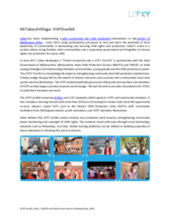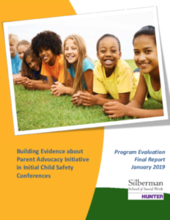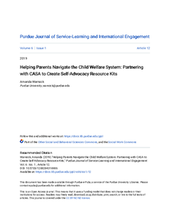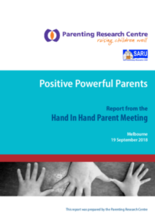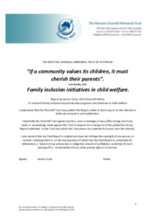This section highlights resources focused on the participation of parents and caregivers in decisions about children's care, including decisions about their own children and their placement in alternative care, as well as advocacy efforts to reform systems of care and protection for children.
Displaying 61 - 70 of 98
This Virtual Companion Tool Kit for child protection committees at the village (VCPCs) is a knowledge kit aimed at strengthening community-led child protection mechanisms.
This evaluation study examined the perceptions and outcomes of the Parent Advocacy (PA) Initiative implemented in Initial Child Safety Conferences (ICSC) by New York City’s Administration for Children’s Services (ACS).
The goal of this paper is to describe a pilot effort to provide empirically sound self-advocacy resource kits to parents in the child welfare system in one Indiana county in the United States, in partnership with the organization that aims to advocate for the best interests of children at the center of these cases—Court Appointed Special Advocates (CASA).
The present study examined the effectiveness of Family Group Conferencing (FGC) in child welfare.
This report is an outcome of the Hand In Hand Parent Meeting held in Melbourne, Australia on 19 September 2018. It shares the stories of parents with intellectual disabilities.
In this study, semi-structured interviews were undertaken with parents with intellectual disability who accessed a specialist advocacy programme in New South Wales, Australia. Thematic analysis was used to identify the influence of advocacy on parents’ experiences.
This paper presents findings from a study in which semistructured interviews were conducted with 33 parents court ordered to participate in a parent education group due to involvement with the child welfare system.
This study sought to understand parents' experiences of the supports and barriers to engagement in an evidence‐based parenting intervention (EBPI).
This video from Rise Magazine is designed to include in training for caseworkers, visit coaches, parent advocates and other frontline staff who will supervise or support parents during visits with children in foster care.
This Churchill Fellowship has explored family inclusion initiatives in the USA, Canada, Norway and the UK and has found that family inclusion is a pathway to better outcomes for children and young people including restoration and permanency.

